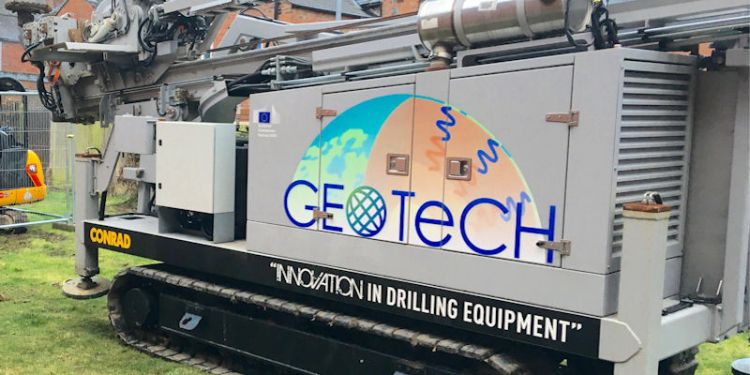Energy geotechnics

Energy geotechnics is a new field in engineering that is concerned with using the ground as a thermal energy resource. This multi-disciplinary field draws on geology, geotechnical engineering, and building services engineering disciplines. Heating and cooling systems that can use the ground as a thermal energy resource such as geothermal heat pump systems, promise to be the most efficient means of meeting building thermal energy demands. Our research seeks to develop the knowledge and innovations to facilitate effective application of such technologies and enable them to have an impact in a sustainable energy system.
Exchanging heat with the ground for heating and cooling purposes can be achieved through a number of ground heat exchanger technologies including: borehole heat exchangers; horizontal ground heat exchangers; energy piles; diaphragm/screen wall heat exchangers; standing column wells; tunnel linings; and, Waste water system components. In much of our research we are working with industrial and academic partners to develop innovative heat exchanger designs and improve design methods and modelling approaches.
Our work draws on fundamental developments in geotechnical modelling and advanced thermal system models to develop efficient models of geo-energy systems for use in design and optimization studies. We are concerned with modelling over a range of spatial and temporal scales – from fluid/pipe interactions at small scales to large-scale thermal interactions between buildings and the ground over long timescales.
Monitoring of real geothermal heating and cooling systems in operational buildings is important to gaining an understanding of performance in realistic conditions and how good performance can be achieve in practice. Our expertise in analysis of such data is enabling industry to develop improved approaches to achieving robust performance levels.
Proper design of ground heat exchange systems requires good data concerning the thermal properties of the ground. This is especially challenging in view of the local variability of ground conditions. We have been developing methods to estimate ground thermal properties from test measurements for two decades and this continues to be an area of research and innovation. Methods range from lab-scale testing to in-situ testing of borehole heat exchangers and energy piles and advance Distributed Temperature Sensing methods.
PhD projects
We have opportunities for postgraduate researchers. Find out more.
Contact us
If you would like to discuss an area of research in more detail, please contact Professor Simon Rees or Fleur Loveridge.

